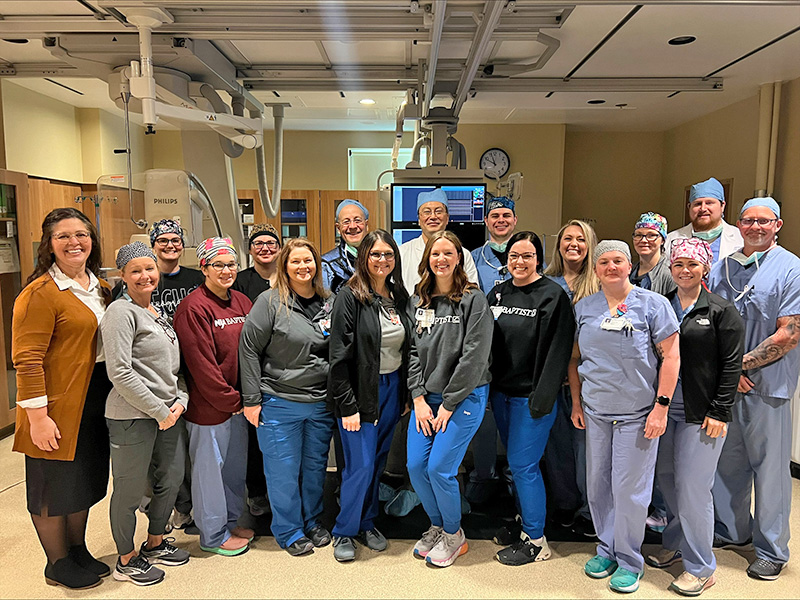NEA Baptist Memorial Hospital successfully performed the hospital’s first implant of a new cardiac device that helps keep harmful blood clots from forming and causing a stroke. Dr. David Lan, electrophysiologist with Stern Cardiovascular, performed the procedure on a patient with non-valvular atrial fibrillation (AFib).
An estimated seven million Americans are affected by atrial fibrillation, an irregular heartbeat that can feel like a quivering heart. People with this condition have a five times greater risk of stroke than those with normal heart rhythms.
The new device, called the WATCHMAN FLX Left Atrial Appendage Closure (LAAC), closes off an area of the heart called the left atrial appendage (LAA) to keep harmful blood clots from forming and entering the blood stream. By closing off the left atrial appendage, the risk of stroke may be reduced, and patients may be able to stop taking blood thinner medications. The one-time, minimally invasive procedure offers a lifetime of stroke risk reduction.
Multiple departments collaborated with Boston Scientific representatives to bring about this successful launch, including the Electrophysiology (EP) department at Stern Cardiovascular, NEA Baptist Cardiology Nurse Navigator, NEA Baptist Cath Lab, Echocardiogram (Echo), Anesthesia, Blood Bank, Operating Room (OR) and Cardiovascular (CV) Surgery.
The hospital’s four initial Watchman procedures were performed in the Cath Lab under general anesthesia with transesophageal echo (TEE) performed before the procedures by Dr. Robert Taylor with an echo tech to evaluate LAA for thrombus. TEE was completed during the surgery for measurements of LAA to choose the appropriate size of device. TEE imaging was also performed post implant to confirm placement.






